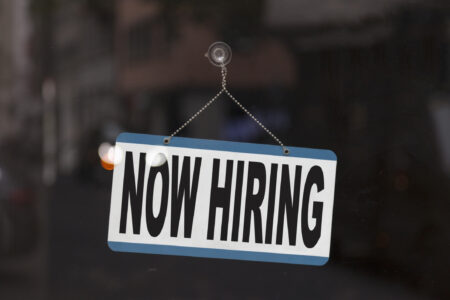By Patrick J. Kennedy and Ryan Hampton
Substance use disorder, commonly known as addiction, affects one in three households in the U.S. That’s one-third of all American families. Approximately 28 million individuals currently live with a highly treatable, but also highly stigmatized mental health disorder. What do all these people have in common? They work. And many continue to face antiquated, discriminatory practices that consider addiction a moral failing.
According to a report from the Massachusetts Department of Public Health, people who work in the trade industries are most impacted by substance use disorder. Construction workers were involved in almost a quarter of overdose deaths recorded in the state over five years. Not far behind were individuals working in farming, forestry, and hunting and fishing. Women working in health care support and food services were also disproportionately prone to overdose deaths.
Now, more than ever, we need recovery-friendly practices and updated, compassionate policies in the workplace, like the ones outlined for health care professionals in President Biden’s new strategy to address our national mental health crisis. As the president pointed out, we cannot transform mental health solely through the health care system: “We need a whole-of-society effort to address these concerns: to expand prevention programs and actions that improve mental health at every age and across settings; and to enhance programs that support recovery, especially for populations at increased risk during vulnerable transition periods.”
Beyond the tragedy of overdoses, there is another enormous cost to society. The economic impact of untreated addiction costs businesses and taxpayers an estimated $740 billion per year, a number that includes illegal drugs, alcohol, and tobacco. For businesses, substance use should practically be a line item of its own, accounting for increased health care costs, employee sick leave/paid time off, and lost productivity. Some of the most common consequences are frequent absenteeism; loss of concentration; accidents and other safety hazards caused by inattention; diminished passion for mission and camaraderie; increased work-related stress and anxiety, which often contribute to physical health problems; conflict with supervisors and/or co-workers; and negativity that can be imprinted on others.
Employers are in a unique position to spark a universal paradigm shift in workplace culture and population wellness by making critical policy changes to hiring practices, disciplinary measures, medical leave, and more. Most of the necessary changes are simple, with a very large ROI. For example, employers could cover 30 days of paid leave for individuals who need addiction treatment rather than incurring the financial burden of onboarding a replacement. The employee, in turn, is given a fighting chance to address their challenges with the peace of mind of sustained employment. It’s a win-win.
Questions about past nonviolent, addiction-related crimes such as possession or driving under the influence could also be eliminated from hiring processes for most jobs (outside of the transportation sector). Having addiction on your record, whether it’s a stint in rehab or a drug-related conviction, makes it nearly impossible to find employment. It’s not uncommon for workers to lose licenses or professional certifications. This pushes many people out of their profession or trade and straight into unemployment. Or it propels them to lie, thus reinforcing the cycle of stigma.
Creating a recovery-friendly workplace not only ensures that employees have an opportunity to thrive, but it also helps businesses retain staff, have fewer incident reports, and lower insurance costs. Additionally, being recovery-friendly encourages people living and working with serious mental health challenges to share their stories and normalize an important conversation—just as members of The Stability Network do around the country.
Some of the most successful companies in the world (e.g., Google, Lockheed Martin, and Amazon) have formed recovery networks for their employees. Google even lit their campus with purple lights to acknowledge International Recovery Day. Hilton Grand Vacations has been certified as a “recovery-friendly workplace.” Each of these major employers is making a profound difference in millions of lives—not just their employees’ lives, but also the lives of loved ones who depend on those employees.
Instead of punishing people when they’re sick, struggling with the disease of addiction, companies can change the narrative once and for all. We have to modernize the way recovery is prioritized in America. Lived experience is an asset, not a liability. The average American spends more time with their employer and co-workers than they do with their own family. Evolved policies and practices matter—to employee satisfaction and the bottom line. It’s time we redefine the concept of workplace “wellness” to include the brain. It’s just good business.
Former U.S. Rep. Patrick J. Kennedy, founder of The Kennedy Forum, served on the President’s Commission on Combating Drug Addiction and the Opioid Crisis, and is a person in long-term recovery from addiction. He is the author of “A Common Struggle: A Personal Journey Through the Past and Future of Mental Illness and Addiction.” Ryan Hampton is a nationally recognized recovery advocate, community organizer, and person in long-term recovery from addiction. He is the author of “Unsettled: How the Purdue Pharma Bankruptcy Failed the Victims of the American Overdose Crisis.”

